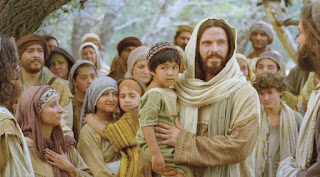Parenting and Anger
Spare the Rod
As a member of the Church of Jesus Christ of Latter-day Saints, I did not realize that the Church had a position on parenting and anger. I am a convert to the church and the one concern that my mother had when I had children is that I would have “wild Mormon kids”. I asked her what she was talking about and she said you know the one where the mother is sheepishly asking her child to do something and the child either yells back or ignores her altogether. That is one extreme of parenting.
In contrast, you’ve heard the old adage, “spare the rod and spoil the child”. Doesn’t that mean that you should beat your kids? I mean it’s in the Bible, right? Let’s take a look at what’s actually in the bible. In Proverbs 13:24 it says, “He that spareth his rod hateth his son: but he that loveth him chasteneth him betimes.” (“Proverbs 13,” n.d.) I’m not going to lie even after reading this I was still a bit confused.
So I dug a bit deeper and stumbled upon a great article from the Chicago Tribune entitled” Spare the rod, spoil the child' isn't biblical” written by Guida C. Eldorado. Ok so someone wrote an article big whop who is she to say this isn’t what the Bible meant. Guida has a Masters in Social Work and is a licensed clinical social worker in Elmhurst, IL. She has also taught Sunday school for a number of years. Here is the link to her article. In summary, it says that the Proverb is talking about guiding our children like a shepherd does its sheep. Not Beating our children. “The sheep were not beaten with the rod. "Sparing the rod" in that sense means that a parent must guide his or her child and teach the child right from wrong.” (Eldorado, 2018)
Our Church is led by living Apostles and Prophets so I could look to see what they advise as well. Gordon B Hinckley said, “In terms of physical abuse, I have never accepted the principle of “spare the rod and spoil the child.” I will be forever grateful for a father who never laid a hand in anger upon his children. Somehow he had the wonderful talent to let them know what was expected of them and to give them encouragement in achieving it.” (“Save the Children,” 1994)
The David O McKay library website has a section dedicated to spanking. "Use no lash and no violence, but . . . approach them with reason, with persuasion and love unfeigned. . . You can't do it any other way. You can't do it by unkindness; you cannot do it by driving. . . . You can't force your boys, nor your girls into heaven. You may force them to hell, by using harsh means in the effort to make them good, when you yourselves are not as good as you should be. The man that will be angry at his boy, and try to correct him while he is in anger, is in the greatest fault. You can only correct your children by love, in kindness, by love unfeigned, by persuasion, and reason" (“Spanking | BYU McKay School of Education,” 2018)
I also found this gem "Above all else, children need to know and feel they are loved, wanted, and appreciated. They need to be assured often of that." (“Spanking | BYU McKay School of Education,” 2018)
I found another article from Deseret News quoting Orson Scott Card. “Spare the rod and spoil the child" was the old adage, drawn from the book of Proverbs. Some have taken it literally, as divine sanction for beating children with sticks. Slightly modernized, here's what the proverb actually says: "He that spares his rod hates his son: but he that loves him chastens him betimes" (Proverbs 13:24). The point is not that children need beating, but rather that they need their parents — their fathers in particular — to let them know what is and is not permissible. This is a grave responsibility of all people, to civilize their children. It's good that we have tossed the "rod" of brutality away — but too many have tossed out the "chastening" as well.” (Sep. 30, 2010Best of LDS Blogs, byDeseret News, 2016)
In the church, we often focus on what you should do rather than what you should do. Should you parent in anger? Probably not. Is it going to happen sometimes? Yeah, probably.
We should use Doctrine and Covenants 121: 41-46 as a guide of what we should do in parenting.
“No power or influence can or ought to be maintained by virtue of {Parenting}, only by persuasion, by long-suffering, by gentleness and meekness, and by love unfeigned;
By kindness, and pure knowledge, which shall greatly enlarge the soul without hypocrisy, and without guile—
Reproving betimes with sharpness, when moved upon by the Holy Ghost; and then showing forth afterwards an increase of love toward him whom thou hast reproved, lest he esteem thee to be his enemy;
That he may know that thy faithfulness is stronger than the cords of death.
Let thy bowels also be full of charity towards all men, and to the household of faith, and let virtue garnish thy thoughts unceasingly; then shall thy confidence wax strong in the presence of God; and the doctrine of the priesthood shall distil upon thy soul as the dews from heaven.
The Holy Ghost shall be thy constant companion, and thy scepter an unchanging scepter of righteousness and truth; and thy dominion shall be an everlasting dominion, and without compulsory means it shall flow unto thee forever and ever. “
Sources:
Proverbs 13. (n.d.). Retrieved July 18, 2020, from https://www.churchofjesuschrist.org/study/scriptures/ot/prov/13?lang=eng
Eldorado, G. C. (2018, August 25). `Spare the rod, spoil the child’ isn’t biblical. Retrieved July 18, 2020, from https://www.chicagotribune.com/news/ct-xpm-2005-03-13-0503120312-story.html
Save the Children. (1994, October). Retrieved from https://www.churchofjesuschrist.org/study/general-conference/1994/10/save-the-children?lang=eng
Sep. 30, 2010Best of LDS Blogs, byDeseret News. (2016, June 16). Orson Scott Card: Spare rod, but not the iron one. Retrieved from https://www.ldsliving.com/Orson-Scott-Card-Spare-rod-but-not-the-iron-one/s/62286
Spanking | BYU McKay School of Education. (2018). Retrieved July 18, 2020, from https://education.byu.edu/youcandothis/spanking.html





Comments